Let’s set the scene.
I’m in the train station in Cardiff, Wales. After a long day of wandering through castle walls and taking 200 pictures of the scenery, I shifted in my comfy walking shoes.
I was restless.
I had a story idea brewing.
Have you ever had that experience? You travel to a new culture and before you know it, inspiration is flowing like ink from your pen.
At the train station, I rushed into the nearest WHSmith, bought a flimsy black notepad for £3, a single pen for £1, and a Lipton peach tea for £4.
The train ride back to our hotel in London was full of characters, plots, settings, imagery, swirling around the insides of my eyelids like glitter when I closed my eyes.
Here’s what I learned about writing through this experience in the UK.
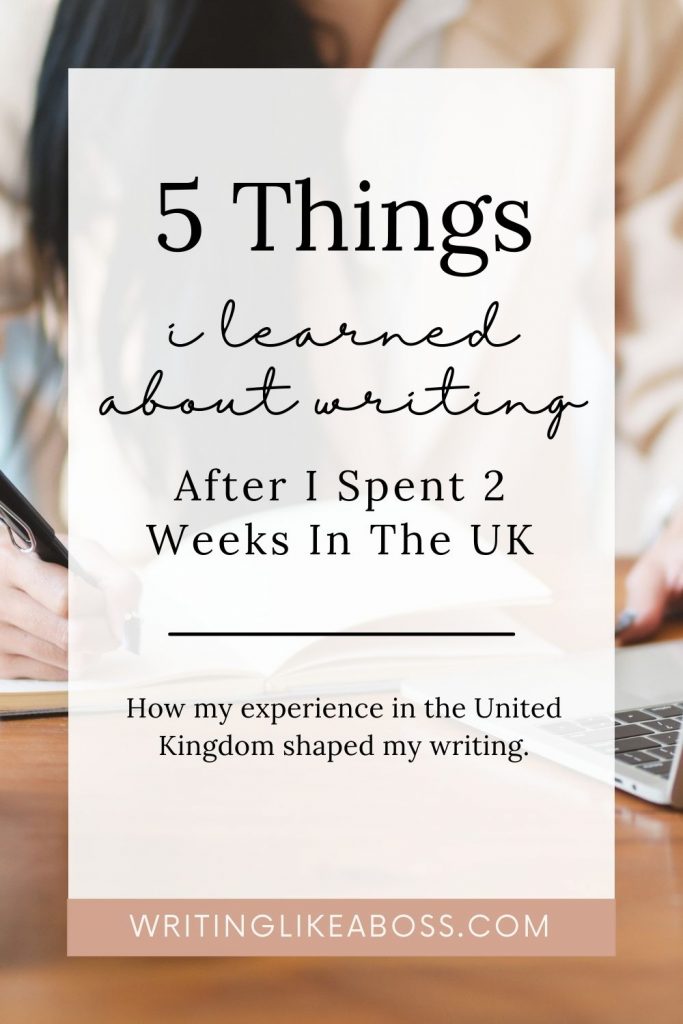
1. Travel inspires writing.
First things first, I want to acknowledge that not everyone can afford to spend weeks in Europe.
Travel is expensive. Inflation is ridiculous. Conversion rates are skyrocketing. Please don’t travel somewhere outside your means for the sake of writing inspiration.
You can travel anywhere, big or small, and it applies to my point. Whether you venture to Spain or to a new grocery store on the other side of town, the key is to go somewhere outside your usual routine.
That said, travel is astronomically beneficial to your personal well of inspiration.
Which makes sense, doesn’t it? How would my inspiration levels stay high if I’m stuck in the same cycle of home/school/work/home every day? If I see the same things over and over, there is nothing new for my brain to find intriguing and write about.
Walking around my neighborhood back home didn’t spark anything in my mind, but wandering the streets of a brand new city gave me images of characters, settings, motivations.
Travel = a new daily “normal.” It resets your brain, so to speak, to be more aware of your surroundings.
BONUS TIP: visit new bookstores if you can. Seriously. It’s a game changer.
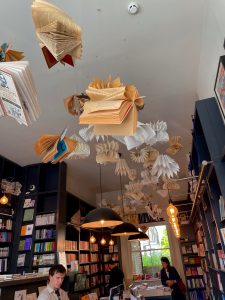
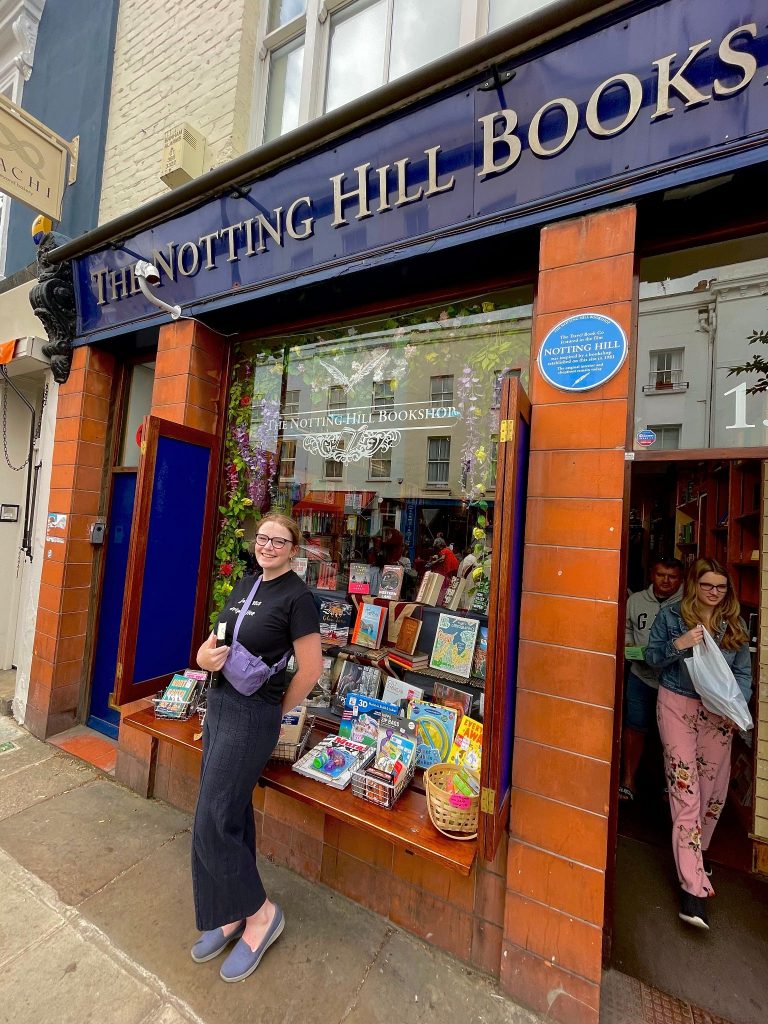
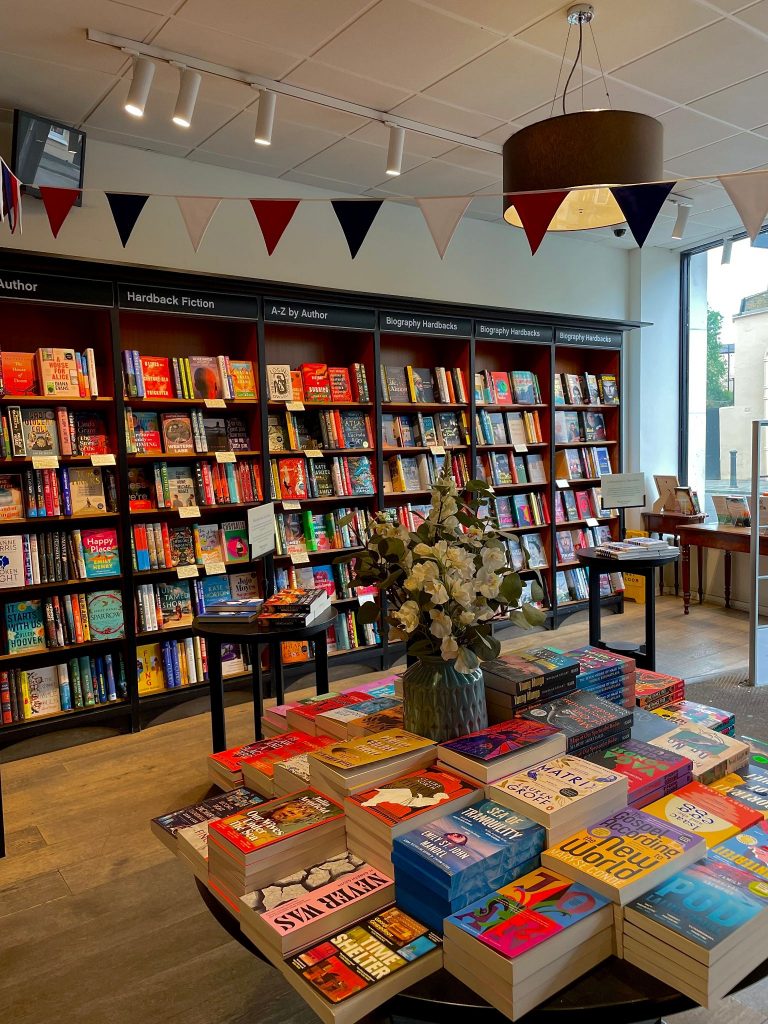
2. Your best ideas come from unlikely places.
I went to the UK with several goals in mind, but one of which was to draw writing inspiration. I have always wanted to write a story in a European setting with actual firsthand influence from my travels.
I expected to generate new story ideas in castles, palaces, maybe on the Thames or wandering along the streets of Bath. Something romantic, sparkling, immersive.
To my surprise, my favorite story idea came from touring the Churchill War Rooms. You know, the underground bunkers from World War II. Not romantic.
I learned that my best ideas will come from unlikely places. On my way back to my hotel from the War Rooms, I daydreamed about characters shuffling through those cinder block walls. Studying maps, clicking on typewriters, listening to bombs fall overhead. I wondered, what were the day-to-day lives of these people like? What did they think about when they woke up on their steel bunkbeds? Those were the kinds of things I wanted to write about, not the way London sparkled at night.
3. Writing exercises are your besties.
Have you ever sat in the ideal writing environment, such as a cozy coffee shop, and wanted to write so bad but had no idea what to write?
Me too. Here’s what I did when I faced this situation every day in the UK. I shared this tip with my fiancé, who is also a writer, and it blew his mind.
It’s simple. Just describe your surroundings.
Seriously.
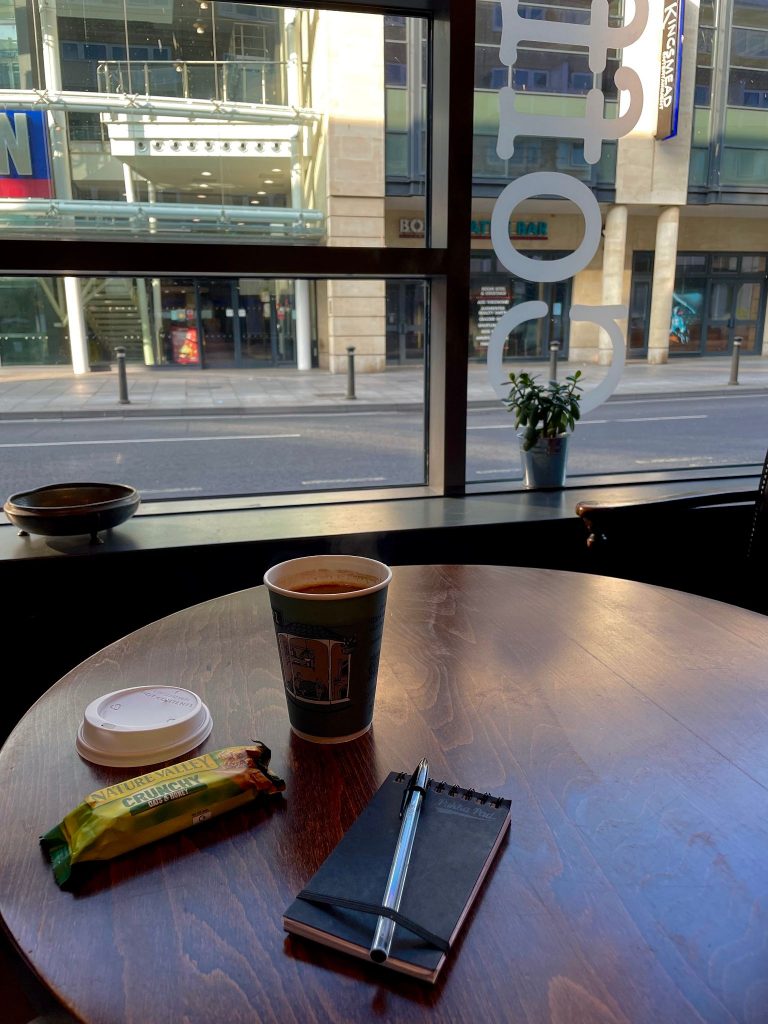
Imagine, for a moment, you’re sitting in a coffee shop in Bath (you know, where Jane Austen lived; no big deal or anything). It’s 7:30 AM; early morning sun flutters through the window. You’re sipping a steamy Americano and brushing Nature Valley protein bar crumbs off your shirt. You pull out the flimsy notepad you bought at the train station, and it’s time to describe your surroundings.
Describe the light, the tone, the sound your shoes make on the floor. Is it loud or quiet? Is there anyone else around? The key is to describe what’s unusual about the setting. If you’re describing a beach, we know there’s sand on the ground. But is there something buried in the sand? Are there people around? What are those people doing? It’s the unique aspects of the environment that your reader will find engaging.
Okay, so you’ve written a few paragraphs describing your setting. What now?
Sometimes you can transition from description to character: describe the coffee shop, and then your protagonist in the coffee shop. Oftentimes you won’t include the lengthy description in your final draft, but it’s helpful as the writer to set the scene in your mind so you can begin to set it for the reader, too.
4. You won’t like what you write the first time.
When I did my writing exercises, I did not like what I wrote. It didn’t flow right. I couldn’t picture any of those words on the pages of a book, which can get discouraging.
I learned, however, that my distaste for my writing doesn’t disqualify the work.
Of course my work won’t be great at this stage of the writing process. When you’re planning, brainstorming, and exploring your story, the quality of the writing doesn’t matter as much as getting the story nailed down. Acceptance of bad writing is key to writing effectively in the first place.
5. Writing doesn’t have to be glamorous.
Finally, I learned that writing is not always sipping-lattes-in-the-café.
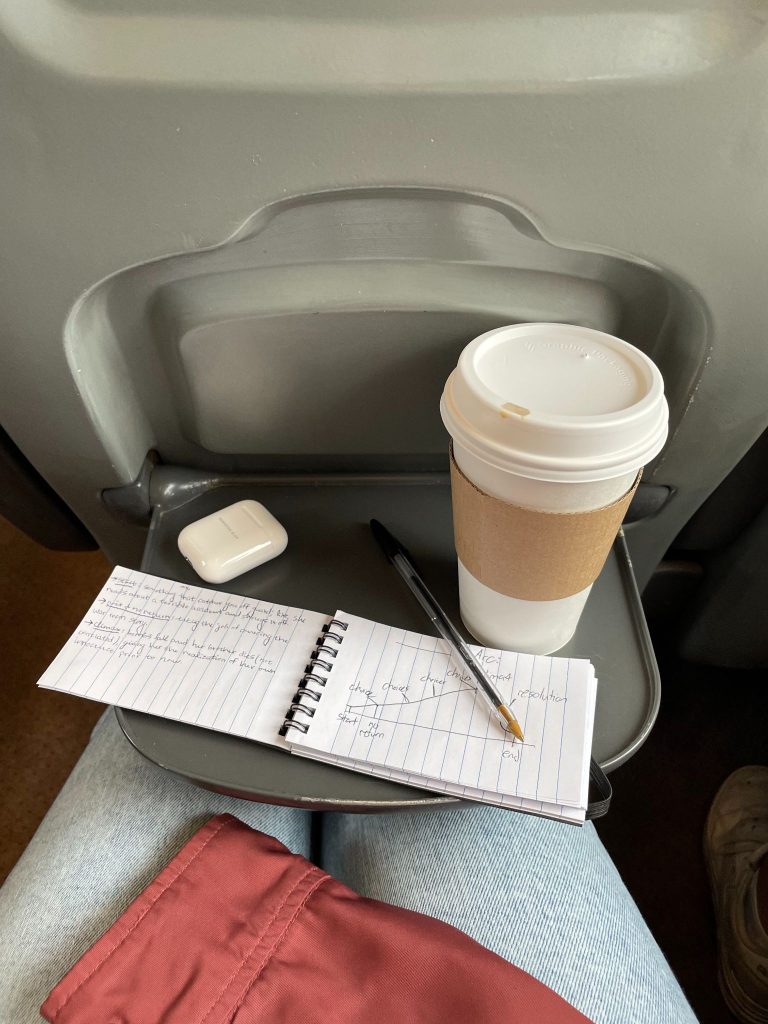
Sometimes it’s getting five words written in between bouts of depression.
Sometimes it’s feeling exhausted and unsatisfied after a writing session.
Sometimes it’s listening to a writing podcast to block out intrusive thoughts.
Writing is writing. Sometimes it’s romantic, sometimes not. It’s hard, but you can do it. It’s scary, but you can be scared and take action at the same time.

What have your experiences with travel and writing looked like?
Do you have any tips to elaborate on these topics?
Join the conversation below, or connect @glasauthor on Instagram!
Happy writing!
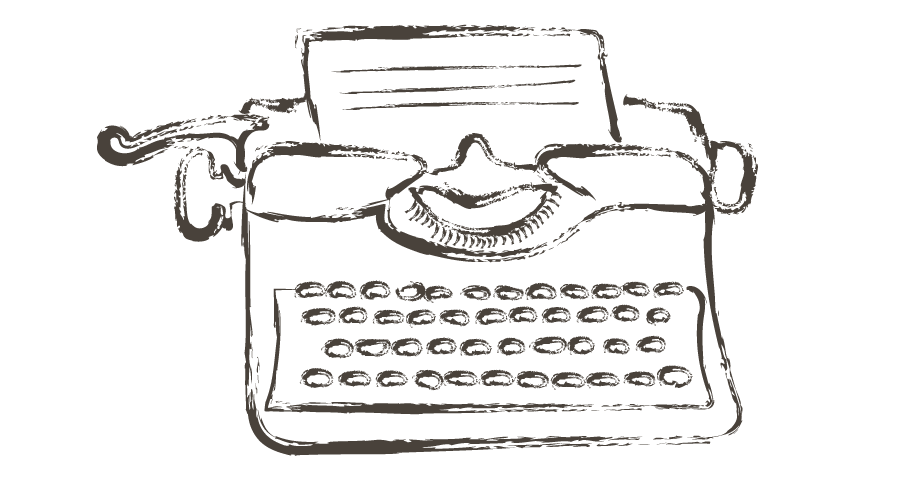

Comments
4 responses to “5 Things I Learned About Writing After I Spent 2 Weeks in the UK”
Hi! So I’m writing a book and the two mains are in love. What are good appropriate ways for them two express their love that won’t make the readers (like my friends) cringe.
As tedious and awful as our writing can be in even the most inspired settings and situations, the opposite eventually happens when we push through. There’s an unexplainable magic that happens when you reread a page you’ve set aside for a time and you find yourself thinking, “Wow. I wrote THIS? This is good stuff.” Push through the banality, the clumsy prose, because that’s when the magic begins.
I’m writing a war story but the only ideas I have are romance and drama.any suggestions?
This is a great post and I love the ideas! Thank you so much for sharing these. I’m having trouble getting my first draft written (or even started), because I’m too eager to get every one of the little nitty-gritties worked out so that I will know how to write. However, I push them to the back of my mind when I start to write, and I revolutionize my plot each time. I’m so excited to get to the finished product that I can’t stay focused long enough to get things done.
I really like your posts though, and they’ve inspired me to try again, consistently. Thank you!